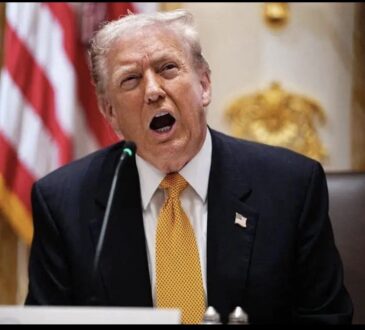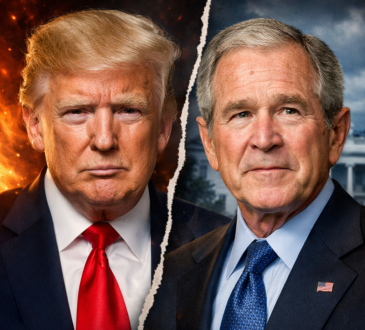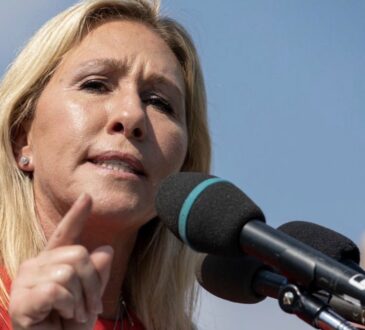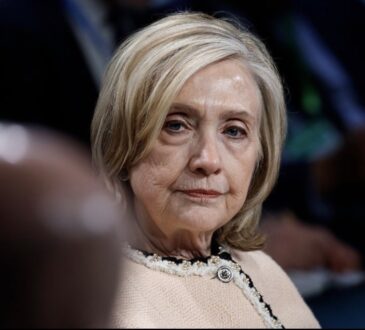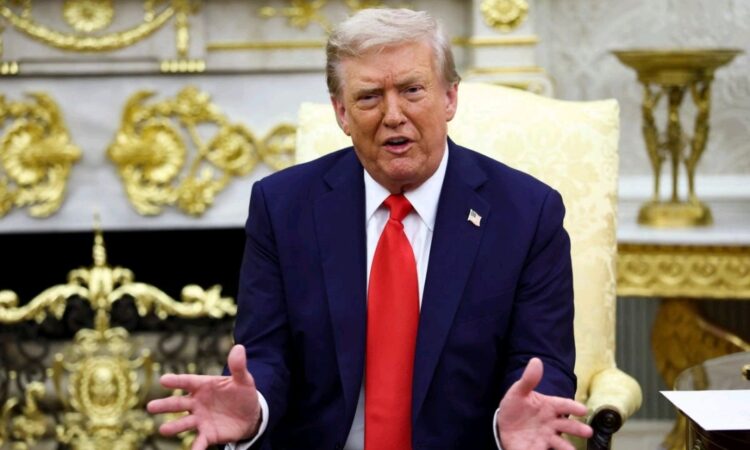
Donald Trump has once again shown that his real goal is not fairness or justice, but protecting himself and punishing those who oppose him. Two recent stories make this clear.
The first story is about how his administration shut down a bribery investigation involving Tom Homan. Before Trump returned to office, Homan had been caught by the FBI taking a bag filled with \$50,000 in cash. In exchange, he promised to give government contracts tied to immigration once he was back in charge of Immigration and Customs Enforcement. Instead of letting the investigation continue, Trump’s administration closed it down.
The second story is about Trump pressuring Attorney General Pam Bondi to go after his political enemies. He demanded that she speed up prosecutions of people like Senator Adam Schiff, former FBI Director James Comey, and New York Attorney General Letitia James. Trump declared on social media that these people were “guilty as hell” and made it clear he wanted them punished. He didn’t even bother to hide his intentions, unlike Richard Nixon, who at least tried to keep his abuses of power secret during Watergate.
This is the heart of the problem. Trump is openly misusing the law. He doesn’t believe in applying it equally. He wants the law to shield him and his allies while targeting anyone he sees as an enemy. The very idea of “justice being blind” means nothing to him. Instead, he treats equality as a threat to his vision of society, where power belongs at the top, controlled mostly by wealthy white men.
For most Americans, equality under the law is a basic principle: whether you are white or Black, Christian or Muslim, straight or gay, rich or poor, the rules should apply equally. Trump and his MAGA movement reject that principle. They see equality not as a virtue but as a kind of attack on their way of life. To them, treating everyone equally is the real injustice.
This goes beyond hypocrisy. Hypocrisy would mean pretending to believe in fairness but secretly undermining it. Trump and his movement don’t even pretend anymore. They want impunity — freedom for themselves to break the rules without consequences, while everyone else is forced to obey. Trump’s power depends on this imbalance: ordinary people face the law, while he is above it.
We saw this mindset when Trump’s press secretary, Karoline Leavitt, was asked why the president wouldn’t accept the Justice Department’s decision not to bring charges against Letitia James. Instead of respecting the outcome, she brushed it off, saying Trump had every right to “express how he feels” about people who had “tried to ruin his life.” What she really meant was that Trump believes he deserves revenge, no matter what the law says.
This is Trump’s version of justice: “Crimes for me, punishment for you.” He floods the public with propaganda about his enemies, hoping people won’t notice how unfair his actions really are. When the bribery case against Homan was shut down, officials called it a “deep state” plot. When urging Bondi to prosecute, Trump painted his impeachments and indictments as baseless lies, insisting that justice demanded revenge against those who investigated him.
But the cracks are showing. Polls suggest that many Americans are growing weary of his presidency and the obvious unfairness behind it. Even some of his allies may start wondering if sticking with him is worth the risk. If Democrats can present themselves as the party of fairness and equal justice, they could win back support. Law and order, in the true sense of the term, could become their strongest platform: restoring justice so that no one is above the law, not even the president.
Democratic leaders like Congressman Eric Swalwell are already warning Trump’s allies. He has told officials who may be involved in shady deals to keep their records and hire lawyers, because they will eventually be investigated. That’s the kind of accountability message Democrats need to keep pushing.
At the same time, Democrats face a challenge. It’s not always easy to connect “corruption” or “equal justice” to everyday issues that voters care about, like health care or the cost of living. But corruption and abuse of power *are* everyday issues when they allow leaders to act like kings and hurt the country for their own gain. Fighting crime and corruption may actually be the most powerful “kitchen-table issue” of all, because it affects everything else — the economy, security, and the future of democracy itself.
Trump is different from any other president in modern history. Even Nixon tried to hide his crimes. Trump flaunts his. Since returning to office, he has piled up illegal acts — tariffs, self-dealing, budget cuts, military actions, media censorship, and more. His administration has been described as authoritarian and criminal, and that description seems more accurate every day.
Trump’s vision is clear: he wants power without accountability, laws that punish his opponents but never apply to him, and a government built to serve him personally rather than the people. The danger for America is just as clear. If equality under the law dies, democracy won’t be far behind.

